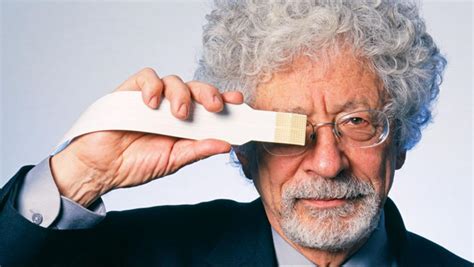A Quote by Hermann von Helmholtz
What we see is the solution to a computational problem, our brains compute the most likely causes from the photon absorptions within our eyes.
Related Quotes
I see the war problem as an economic problem, a business problem, a cultural problem, an educational problem - everything but a military problem. There's no military solution. There is a business solution - and the sooner we can provide jobs, not with our money, but the United States has to provide the framework.
We academic scientists move within a certain sphere, we can go on being useless up to a point, in the confidence that sooner or later some use will be found for our studies. The mathematician, of course, prides himself on being totally useless, but usually turns out to be the most useful of the lot. He finds the solution but he is not interested in what the problem is: sooner or later, someone will find the problem to which his solution is the answer.
I didn't just start with ...local city officials because I knew that they would understand the problem. I started with them because I knew that our cities, towns and counties would be a key part of the solution to this issue. ...there is no one-size-fits all policy or program that can solve this problem. And Washington certainly does not have all the answers. Instead, many of the best, most innovative, most effective solutions start in our city halls and our towns and our county councils.
I would argue that if you understand how the cells of the brain are organized into circuits, almost computational circuits if you will, and we see how information flows through those circuits and how it's transformed, we might have a much firmer grasp on why our brains make decisions the way that they do. If we get a handle on that, maybe we can overcome some of our limitations and at the very least we'll understand why we do what we do.
We have reached a moment in our history where we think that every problem in America has to have a federal government solution. Every problem in America does not have a federal government solution. In fact, most problems in America do not have a federal government solution and many of them are created by the federal government to begin with.
When we want to help the poor, we usually offer them charity. Most often we use charity to avoid recognizing the problem and finding the solution for it. Charity becomes a way to shrug off our responsibility. But charity is no solution to poverty. Charity only perpetuates poverty by taking the initiative away from the poor. Charity allows us to go ahead with our own lives without worrying about the lives of the poor. Charity appeases our consciences.


































